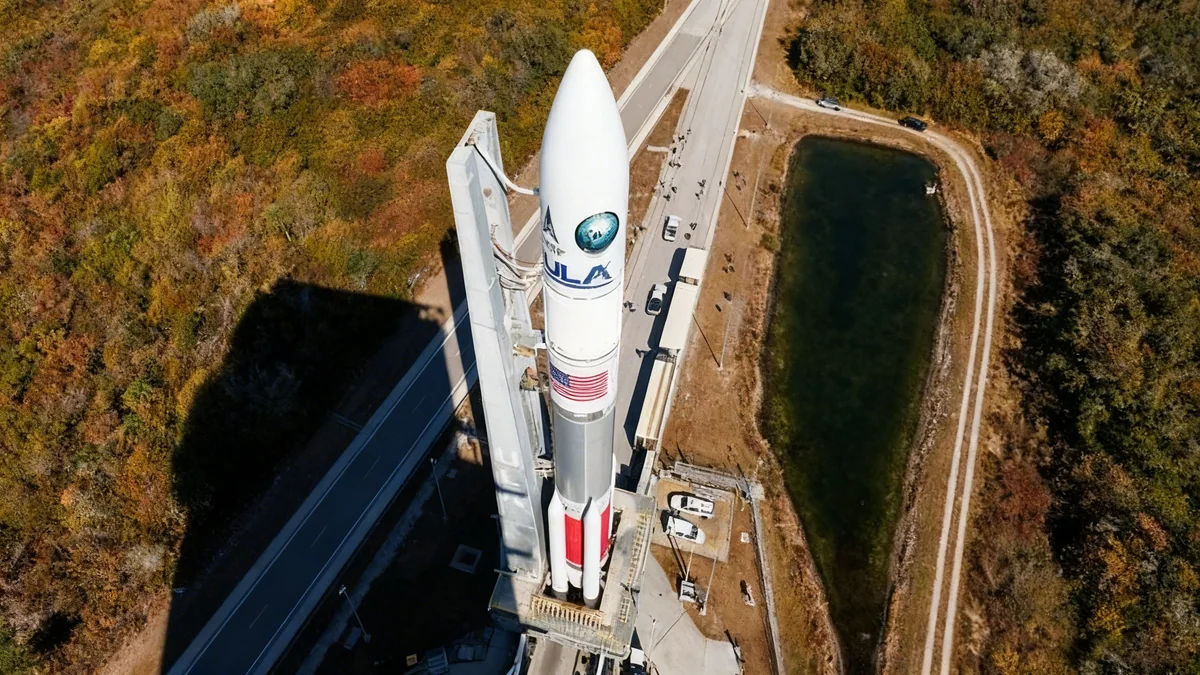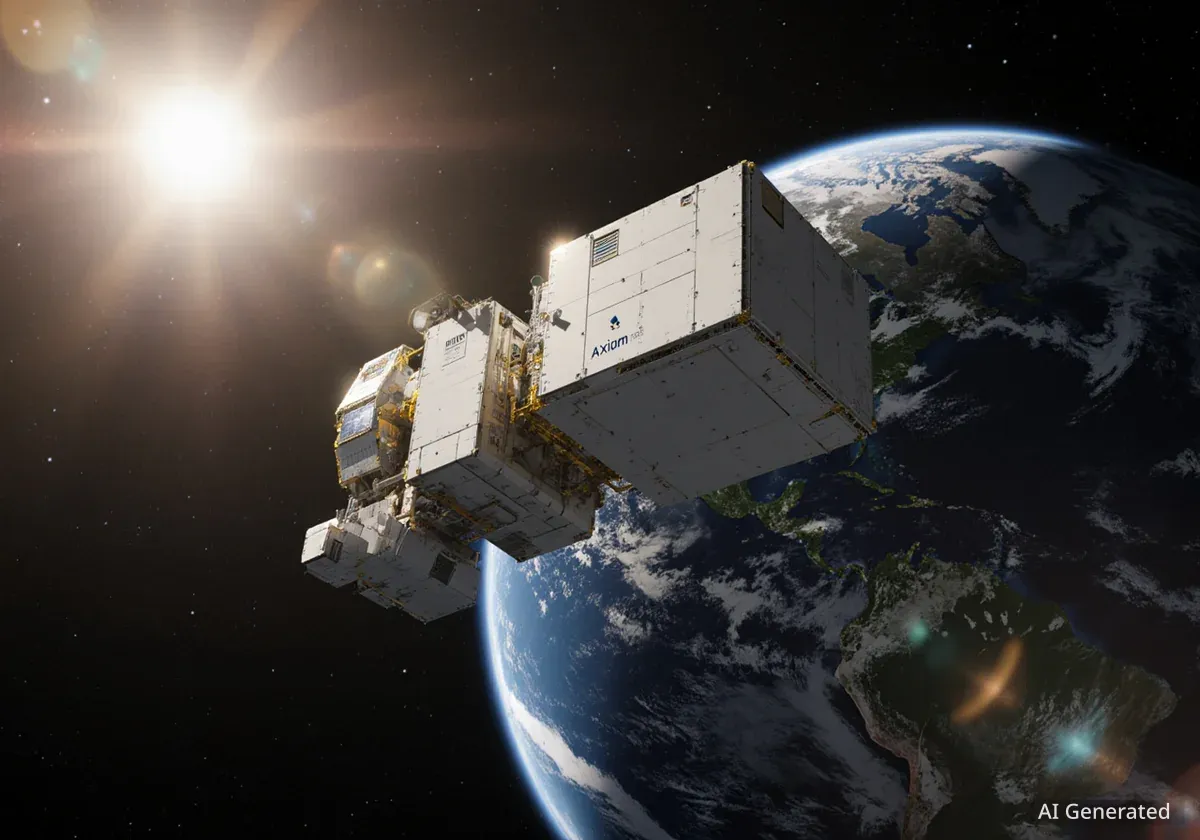Recent market data highlights significant trading activity for Alphabet, Berkshire Hathaway, and GE Aerospace within the space sector. These companies, while not exclusively focused on space exploration, represent key components of the expanding space economy through their involvement in technology, infrastructure, and advanced manufacturing.
Their high trading volumes indicate growing investor interest in the diverse industries that support space-related activities, from satellite communications and data processing to the production of critical aerospace components.
Key Takeaways
- Alphabet, Berkshire Hathaway, and GE Aerospace have recently shown the highest trading volumes among stocks related to the space industry.
- The modern space economy extends beyond launch services to include satellite technology, data infrastructure, and specialized manufacturing.
- Each company provides exposure to the space sector through different business segments, including cloud computing, industrial manufacturing, and aerospace engineering.
- Investor interest is focused on established companies with strong financial performance and strategic connections to space-related supply chains.
Defining the Modern Space Economy
The concept of a "space stock" has evolved significantly in recent years. Historically, this category was limited to aerospace manufacturers and government contractors. Today, it encompasses a wide range of companies whose operations are integral to the space industry, even if space is not their primary business.
This includes firms involved in satellite manufacturing, launch services, space tourism, and in-orbit infrastructure. The growth is driven by technological advancements in communications, Earth observation, navigation, and scientific exploration. As a result, companies from various sectors, including technology and industrial manufacturing, are now considered key players.
A Growing Market
The global space economy is a multi-billion dollar industry that continues to expand. This growth is fueled by decreasing launch costs, the miniaturization of satellites, and rising demand for data-driven services like global internet and Earth imaging. Investing in companies that support this ecosystem offers a way to participate in this long-term trend.
Alphabet Inc. (GOOGL): The Data and Cloud Connection
Alphabet Inc., the parent company of Google, plays a crucial role in the space economy primarily through its data infrastructure and cloud computing services. While not a traditional aerospace company, its technological foundation is essential for modern space operations.
Google Cloud and Space Data
The Google Cloud segment provides the massive storage and processing power required to handle data transmitted from satellites. Space agencies and private companies rely on cloud platforms to analyze information for weather forecasting, climate monitoring, and telecommunications. This makes Google's infrastructure a vital component of the ground segment for many space missions.
Global Services and Satellite Reliance
Many of Alphabet's core products within its Google Services segment depend on space-based assets. Services like Google Maps and Google Earth utilize satellite imagery for mapping and navigation. The company's global communications network also relies on satellite links to connect remote regions, making its operations intertwined with the health of the satellite industry.
Alphabet operates globally, with significant business in the United States, Europe, the Middle East, Africa, and the Asia-Pacific region. Its diverse portfolio includes well-known products such as Android, Chrome, and YouTube, all of which benefit from robust global connectivity supported by satellite technology.
Berkshire Hathaway Inc. (BRK.B): An Industrial Foundation
Berkshire Hathaway is a multinational conglomerate with a diverse portfolio of subsidiaries. Its connection to the space sector is indirect but fundamental, stemming from its significant holdings in industrial manufacturing, transportation, and insurance, all of which are critical to the aerospace supply chain.
Manufacturing and Materials
Through its subsidiaries, Berkshire Hathaway is involved in producing specialized materials and components used in aerospace manufacturing. Companies within its portfolio supply metals, coatings, and electronic parts that are essential for building rockets, satellites, and ground support equipment. This positions Berkshire Hathaway as a key supplier to the broader aerospace and defense industries.
Infrastructure and Logistics
The company also operates one of North America's largest freight rail transportation systems. This logistical network is vital for moving large aerospace components, raw materials, and finished products across the country. Efficient transportation is a critical, though often overlooked, part of the space industry's infrastructure.
Berkshire Hathaway's business model focuses on acquiring and holding companies with strong, stable operations. Its involvement in foundational industries provides a level of stability and exposure to the capital-intensive aerospace sector.
GE Aerospace (GE): A Leader in Propulsion and Defense
GE Aerospace is a direct and established player in the aerospace industry. The company specializes in designing and manufacturing products and services for both commercial and military aircraft, with its propulsion technologies being a cornerstone of its business.
Commercial and Military Engines
The company operates through two main segments: Commercial Engines and Services, and Defense and Propulsion Technologies. It is a leading producer of jet and turboprop engines used by airlines and air forces around the world. The same advanced engineering principles and manufacturing capabilities are applicable to the development of rocket engines and propulsion systems for space vehicles.
Defense and Space Technology
In its defense segment, GE Aerospace provides advanced systems for military aircraft. This work often involves research and development that has direct applications in the space sector, particularly in areas like materials science, electronics, and navigation systems. The company's long history as a defense contractor gives it deep ties to government-funded space initiatives.
Key Segments of GE Aerospace
- Commercial Engines and Services: Supplies jet engines and related services to the global commercial aviation market.
- Defense and Propulsion Technologies: Develops and manufactures engines and integrated systems for military and general aviation aircraft.
Market Perspective on Space Sector Investments
The significant trading volume for these three companies underscores a market trend toward investing in established, financially sound businesses that provide essential goods and services to the space industry. Rather than focusing solely on high-risk, speculative space startups, investors are also recognizing the value of companies that form the backbone of the sector.
This approach allows for participation in the growth of the space economy while mitigating some of the risks associated with companies focused exclusively on unproven technologies or future concepts. Alphabet, Berkshire Hathaway, and GE Aerospace represent different but complementary avenues for gaining exposure to one of the 21st century's most dynamic industries.





